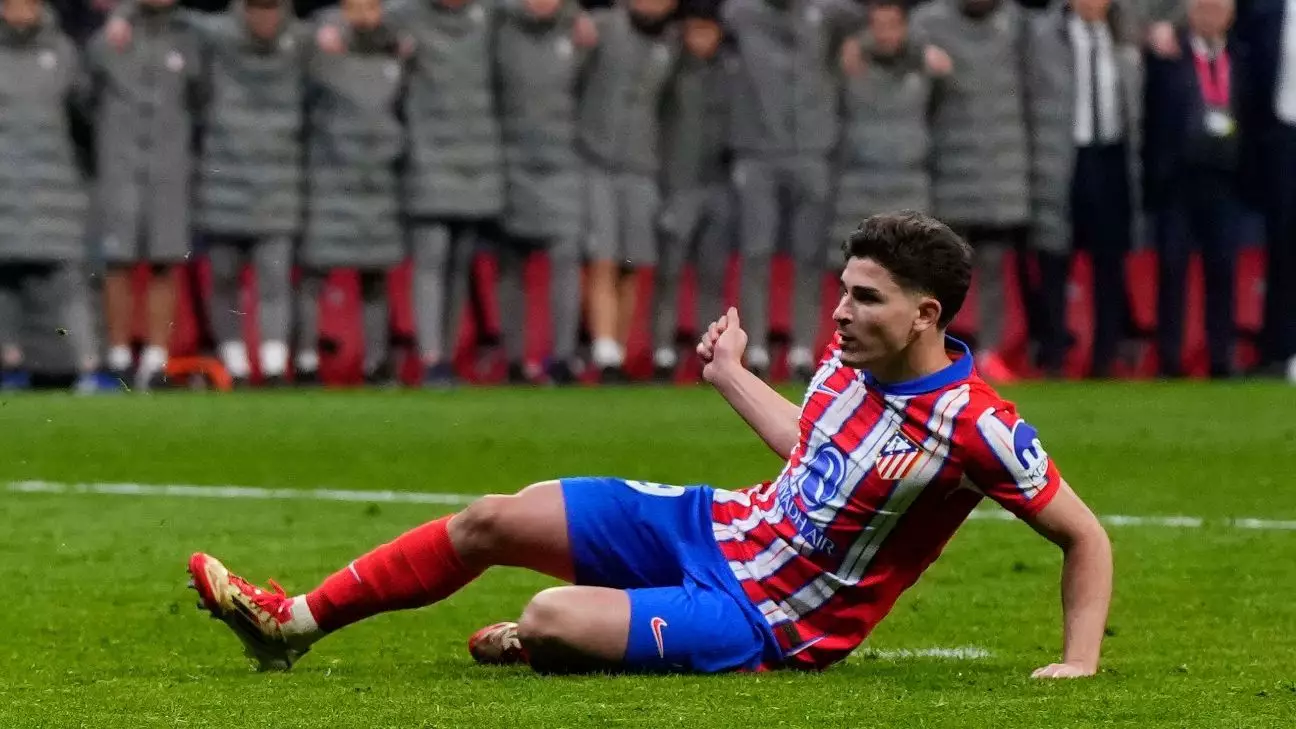Recently, in an episode that stirred both confusion and frustration among soccer fans, Julián Álvarez’s accidental double touch during a Champions League shootout led to Atlético Madrid’s elimination at the hands of Real Madrid. This incident highlighted not only a critical moment in the match but also brought to the forefront the ambiguity of the existing penalty kick rules. The response from the International Football Association Board (IFAB), which oversees the laws of the game, has been to clarify and adjust these rules to minimize future misunderstandings.
Changes to the Penalty Kick Rules
The revisions, effective immediately in UEFA matches, outline explicit scenarios in which a penalty kick is impacted by a double touch. Previously, Álvarez’s goal was disallowed after he accidentally struck the ball with his standing foot, which led to a great deal of debate surrounding the fairness of this ruling. Critics argued that the execution of this penalty kick, in terms of a slip or misstep, should be categorized differently from intentional infractions. With the new guidelines stipulating that an accidentally scored double touch penalty should be retaken, authorities are seeking to reinforce the spirit of fair play and ensure that non-deliberate errors do not result in unjust penalties.
Implications for Future Matches
As the updated rules will be enforced starting with international fixtures—including the Nations League semifinal between Germany and Portugal—clubs and players must adapt quickly to these changes. This adjustment focuses on preserving the integrity of the game by favoring instances of accidental infractions, thereby allowing teams that may suffer from such unpredictable situations a renewed chance to capitalize on their penalties. For Atlético and other teams involved in future competitions, understanding and mastering the nuances of the revised rules will be pivotal.
The Role of Technology in Modern Soccer
With the integration of technology such as VAR (Video Assistant Referee), there emerges an expectation for more precise and fair officiating in soccer. The decision to clarify the rules surrounding double-touch penalties indicates a recognition of the complex nature of the game and the need to adapt to changing dynamics. However, while technology offers a layer of precision, it also heralds the prospect of further controversy. Misinterpretations or misapplications of the rules, even in light of technological aids, can lead to significant game-altering decisions.
Addressing Ambiguities in the Laws of the Game
The update from IFAB serves as a critical reminder that the laws governing soccer are not merely static but are subject to interpretation and evolution. This move not only aims to provide clarity but also reflects an acknowledgment of the complexities inherent in the sport. As the soccer community continues to grapple with the implications of these regulations, it is vital for players, coaches, and fans alike to remain engaged in discussions about fairness and transparency in officiating. The ongoing dialogue surrounding the rules of soccer will ultimately shape the future of the sport, ensuring that fair play remains at the heart of its ethos.

